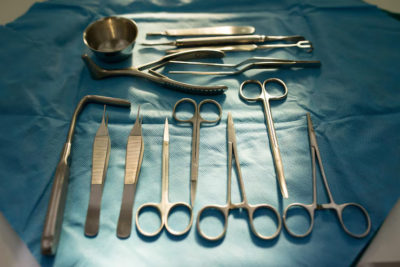Are you ready to see the world through clearer lenses? Cataract surgery offers a ray of hope for those experiencing blurred vision and light sensitivity due to cataracts. However, one common question that often arises is: How long should you wait between cataract surgeries on each eye? Let’s explore this topic and shed light on the best approach to reclaiming your vision.
Cataracts, the clouding of the eye’s natural lens, can significantly impact your quality of life by impairing vision and making daily activities challenging. Fortunately, modern cataract surgery is a safe and effective procedure that restores vision and enhances overall well-being. But the decision to undergo surgery on each eye requires careful consideration, including the timing between procedures.
For instance, John, a retiree with cataracts, opted for cataract surgery on both eyes. His doctor recommended a two-week interval between surgeries. After a successful procedure on her right eye, John waited two weeks for surgery on his left eye. This approach allowed him to adjust to improved vision gradually and ensured a balanced outcome. With open communication and personalised care, he regained clarity and embarked on a journey towards visual freedom and joy.
In essence, spacing cataract surgeries allows for gradual adjustment and balanced outcomes, fostering a smoother journey to clearer vision.
What’s the Ideal Gap Between Cataract Surgeries on Each Eye?
- The ideal time gap between cataract surgeries on each eye is typically 1 to 2 weeks.
- This allows the first eye to heal sufficiently before proceeding with the second surgery.
- The time gap ensures proper evaluation of the first eye’s outcome and avoids complications if adjustments in treatment are needed for the second eye.
- For patients needing quicker treatment due to medical or lifestyle reasons, the gap may be shorter, as determined by the doctor.
Why the Short Interval Between the Surgeries on Each Eye?
- A short interval between surgeries is often recommended for patient convenience and quicker recovery of binocular vision (vision using both eyes).
- It minimizes the discomfort of living with one eye corrected while the other remains affected by cataracts.
- Advances in surgical techniques and faster recovery times allow safe scheduling of the second surgery within a week or two.
- A shorter interval may also benefit those with specific medical needs or scheduling constraints.
What are the Benefits of Cataract Surgery?
-
Improved Vision:
Clearer, sharper vision is restored by removing cloudy lenses affected by cataracts.
-
Enhanced Quality of Life:
Allows individuals to engage more fully in daily activities, increasing independence and confidence.
-
Reduced Dependence on Corrective Lenses:
Minimises or eliminates the need for glasses or contact lenses after surgery.
-
Improved Night Vision and Reduced Glare:
Enhances ability to see in low-light conditions and reduces sensitivity to glare.
-
Treatment of Other Eye Conditions:
Can address astigmatism or presbyopia with specialised intraocular lenses or additional surgical techniques.
-
Long-Term Results:
Typically a one-time procedure with lasting results, providing improved vision for many years.
-
Quick Recovery:
Minimally invasive procedure with a fast recovery time, allowing patients to resume normal activities soon after surgery.
-
Prevention of Further Complications:
Removes the risk of complications associated with untreated cataracts, such as glaucoma and vision loss.
What’s the Recovery Period for Cataract Surgery on Each Eye?
- The initial recovery period after cataract surgery is around 1 to 2 weeks, during which patients experience improved vision and reduced inflammation.
- Full recovery, including stabilization of vision, typically takes 4 to 6 weeks.
- During recovery, patients must follow post-operative care guidelines, such as using prescribed eye drops and avoiding strenuous activities.
- Regular follow-ups are essential to monitor healing and address any concerns.
What Are the Factors Affecting the Time Gap Between Cataract Surgeries on Each Eye?
- Healing Time: The first eye’s recovery must be satisfactory before proceeding with the second surgery.
- Patient’s Medical Condition: Conditions like diabetes or high blood pressure may require additional recovery time.
- Lifestyle Needs: For individuals needing quick recovery for daily activities, a shorter gap may be preferred.
- Surgical Outcome: Doctors may wait to assess the success of the first surgery to make adjustments for the second.
- Overall Health: Any existing illnesses or infections can delay the timing of the second surgery.
What Are the Risk Factors of Second Surgeries?
- Infection Risk: Though rare, infections in the second eye are a possibility.
- Inflammation: Post-surgical inflammation may affect recovery or delay the second procedure.
- Incorrect Measurements: If the first surgery’s outcome was not ideal, it could affect planning for the second surgery.
- Patient-Specific Conditions: Pre-existing eye diseases or conditions like glaucoma may increase risks for the second surgery.
- Immune Response: The body’s healing response may vary, potentially affecting recovery in the second eye.
Post-Operative Care and Recovery for Both Eyes
- Use Prescribed Eye Drops: These prevent infection, reduce inflammation, and promote healing.
- Protect the Eyes: Wear protective glasses and avoid touching or rubbing your eyes.
- Follow Activity Restrictions: Avoid heavy lifting, bending, or strenuous activities for at least 1-2 weeks.
- Monitor Symptoms: Report any signs of redness, pain, or vision changes to your doctor immediately.
- Regular Follow-Ups: Attend all post-operative appointments to ensure proper healing and address any complications.
Cataract surgery is a safe and effective treatment option that offers multiple benefits, ultimately enhancing overall eye health and quality of life.
At Dr Agarwals Eye Hospital, we understand the importance of clarity and vision in your life. Our team of experienced ophthalmologists is dedicated to providing comprehensive eye care services tailored to your unique needs. From cataract diagnosis to advanced surgical techniques, we’re committed to helping you see the world with renewed clarity and confidence.
If you’re considering cataract surgery or have questions about the procedure, don’t hesitate to reach out to us. Together, let’s illuminate your path to clearer vision and a brighter future. Remember, the journey to clearer vision begins with a ced qualitysingle step. Take that step today and embark on a transformative journey towards visual freedom and enhan of life.








